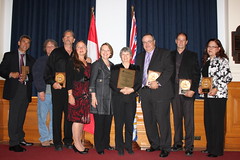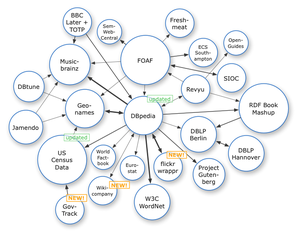Really, What is Situation Awareness?
/We talk about situation awareness a lot. In fact, it permeates a lot of our central assumptions and decisions. It also impacts how we strategize about our operations and planning, especially as it relates to information management. So really, what is situation awareness? How does it relate to information management?
Situation awareness is the primary conceptual tool that disaster personnel use to manage all the information that disasters create. Endsley (1988) describes situation awareness as “the perception of the elements in the environment within a volume of time and space, the comprehension of their meaning and the projection of their status in the near future.” According to Endsley (2000), situation awareness is a distinct stage from decision making and the subsequent performance of actions. Endsley (1995, 2000) defines three levels of situation awareness leading to decision making and the performance of actions:
- Level 1 – Perception of current situation,
- Level 2 – Comprehension of current situation, and
- Level 3 – Projection of future status.
Harrald and Jefferson (2007) add that in emergency management, data interoperability leads to a common operating picture, which then leads to situation awareness. These concepts are intricately linked and build off one another. Endsley (2000) points out that situation awareness “is a state of knowledge about a dynamic environment. This is different than the processes used to achieve that knowledge.”
As situation awareness is achieved, though, employing a decision aid such as John Boyd's OODA loop helps decision makers make the right decisions. Originally developed for military application, the OODA loop has application across a wide range of situations. It has four central components: 1) Observe, 2) Orient, 3) Decide, 4) Act.
So if our goal is to achieve good situation awareness so we can make better decisions, where do we begin?
Researchers such as King (2005) focus on how knowledge management concepts can be used to categorize disaster information needs of decision makers. Knowledge management has close ties to situation awareness as they both deal with the effective use of information. However, situation awareness uses knowledge management concepts to inform decision makers specifically in highly dynamic and mission critical environments. According to the King (2005), “[k]nowledge management is the systematic process and strategy for finding, capturing, organizing, distilling and presenting data, information, and knowledge for a specific purpose and to serve a specific organization or community.” He bases his categorization on the needs of decision makers as a whole and finds there are four different types of knowledge types that decision makers seek out:
- Situational
- Background
- Operational
- Analytical
This categorization is quite high level, though, and does not fully address the range of decision making information needs. In addition, the ability to find, capture, organize, distill and present data, information and knowledge is quite challenging in practice. King (2005) points out the challenges organizations face:
“Information is constantly changing, comes from a multitude of sources and is often incomplete or contradictory. In some cases, there is an overload of information and, in other cases, there are complete gaps in what we know. Collecting information is often difficult, if not impossible, because of inaccessibility to the affected areas due to natural hazards, insecurity or government restrictions.”
Zhang et al. (2002) adds:
“Relief agencies are slowly developing the infrastructure to undertake effective information and knowledge management. A huge amount of information is collected but not efficiently used. Despite advanced technology achievements, many decision are still taken in emergencies with little information beyond that in people’s heads.”
Information management is inherently complex. Overcoming this complexity is a key challenge for our future as more and more information becomes available, especially in real-time. So what approach will yield the greatest effort-to-outcome ratio in improving information management? I think the we still have a ways to go on this, but simply categorizing and typing all available information is also impractical, costly, and causes strategists and technologists to lose focus on important and high value contributions.
So what are your thoughts on situation awareness? Does this jive with your interpretation? What are the challenges you face in practice?


 As I reflect on the past month in my
As I reflect on the past month in my 

 Government Led, Community Reliant. Building off the issues with interdependencies, we also have a mismatch occurring in that initiatives are often government led, but effective responses to disasters are extraordinarily community reliant.
Government Led, Community Reliant. Building off the issues with interdependencies, we also have a mismatch occurring in that initiatives are often government led, but effective responses to disasters are extraordinarily community reliant. 